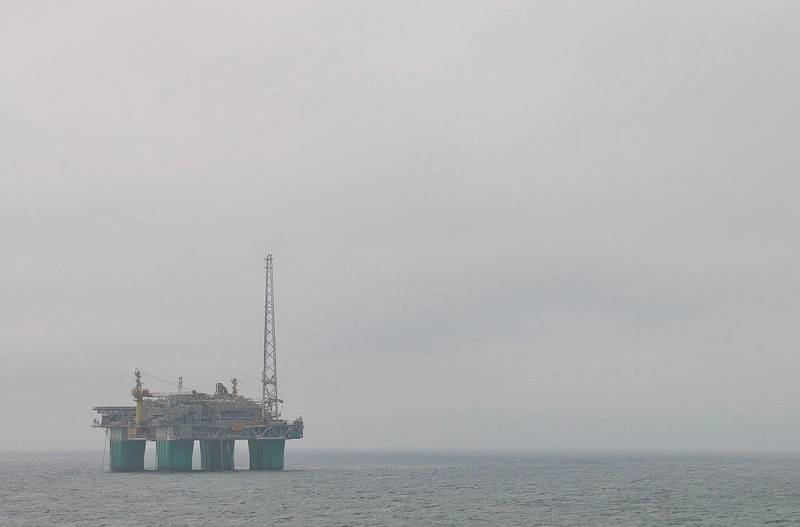
Six Norwegian offshore oil and gas fields were shut on Monday as more workers joined a strike over pay, companies and union officials said.
The strike will cut Norway's total output capacity by just over 330,000 barrels of oil equivalent per day, or about 8% of total production, according to the Norwegian Oil and Gas Association (NOG).
The dispute began on Sept. 30 when a group of 43 workers organized by the Lederne union went on strike after wage talks failed between the union and the NOG, which represents oil and gas companies.
Monday's escalation added 126 union members to the strike, taking the total to 169 out of the 1,003 offshore workers Lederne represents.
Norway regularly pumps just over 4 million barrels of oil equivalent per day, half in the form of crude and other liquids and half from natural gas, making it a major global energy supplier.
An Equinor spokesman said the company had closed four of its fields, while Neptune said in a statement its Gjoea field and Wintershall Dea's Vega were also shut.
Wintershall Dea, which operates the Vega field via the Gjoea field's platform, was not immediately available for comment.
Output from Johan Sverdrup, the North Sea's largest producing oilfield, was unaffected by the strike, Equinor said.
"There is no solution in sight," said a spokesman for the NOG.
"Employers are still showing no willingness to meet our demands, thus triggering the escalation," Lederne trade union chief Audun Ingvartsen said in a statement.
The shutdowns helped to boost global oil prices on Monday, with Brent rising 5.35% at 1829 GMT.
They also helped firm British wholesale gas prices, with Norwegian pipeline system operator Gassco reporting that strike action was curbing available volumes by 35.6 million cubic meters [Monday] and on Tuesday.
The strike hit Equinor's Gudrun, Gina Krog and Kvitebjoern fields, as well as Kvitebjoern's satellite Valemon field.
Close to 60% of the total cuts were natural gas, with crude oil and natural gas liquids making up the rest, a Reuters calculation based on official Norwegian output data showed.
In July, the combined crude oil output from the six fields that were shut on Monday stood at 79,000 barrels per day, while natural gas production amounted to 194,000 boepd, according to Norwegian Petroleum Directorate (NPD) data.
Natural gas liquids from the six fields amounted to about 62,000 barrels per day, the data showed.
Kvitebjoern, Valemon, Gjoea and Vega all pump oil into the Troll Oil terminal, making them part of the global Brent crude benchmark, with the four fields contributing close to 31,000 barrels per day in July, according to the NPD data.
Before the strike, the Troll crude oil blend had been scheduled to run at around 155,000 barrels per day in October, according to trade sources.
"The outage from the strike would need to last around three weeks in order for the impact to accumulate to 600,000 barrels - the size of a loading cargo," Energy Aspects analyst Christopher Haines said.
"I’d be surprised if the strike lasts that long," he said.
Lederne said it was seeking better financial terms for members and wanted the offshore wage agreement to also cover workers at onshore remote control rooms.
Equinor and other oil companies have been looking into ways to remotely control production at offshore fields, to cut costs.
The NOG said Lederne's demand fell outside the scope of the offshore wage agreement.
(Additional reporting by Nora Buli in Oslo and Shadia Nasralla in London, Editing by Clarence Fernandez, Jane Merriman and Peter Graff)





No comments:
Post a Comment